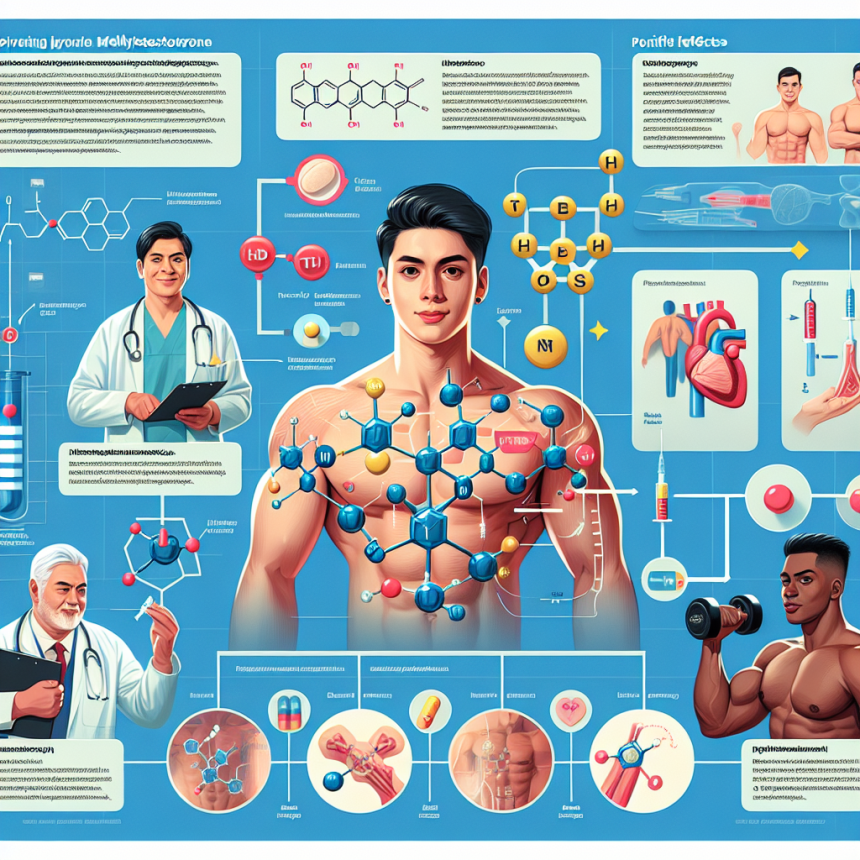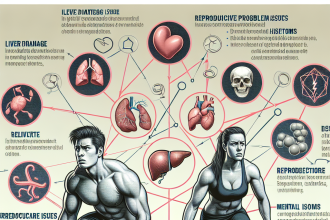-
Table of Contents
- Unlocking the Secret of Improving Physical Performance with Methyltestosterone
- The Basics of Methyltestosterone
- Pharmacokinetics of Methyltestosterone
- Pharmacodynamics of Methyltestosterone
- The Controversy Surrounding Methyltestosterone Use
- The Potential Benefits of Methyltestosterone in Improving Physical Performance
- The Risks and Side Effects of Methyltestosterone Use
- Expert Opinion on Methyltestosterone Use in Sports
- Conclusion
Unlocking the Secret of Improving Physical Performance with Methyltestosterone
Physical performance is a crucial aspect of sports and athletic competitions. Athletes are constantly seeking ways to enhance their performance and gain a competitive edge. One substance that has gained attention in the world of sports pharmacology is methyltestosterone. This synthetic form of testosterone has been shown to have significant effects on physical performance, but its use is highly controversial. In this article, we will explore the pharmacokinetics and pharmacodynamics of methyltestosterone and its potential benefits and risks in improving physical performance.
The Basics of Methyltestosterone
Methyltestosterone is a synthetic androgenic-anabolic steroid that was first developed in the 1930s. It is a modified form of testosterone, with a methyl group added at the 17th carbon position. This modification allows for oral administration and increases the bioavailability of the hormone. Methyltestosterone is classified as a Schedule III controlled substance by the United States Drug Enforcement Administration (DEA) due to its potential for abuse and misuse.
As an androgenic-anabolic steroid, methyltestosterone has both androgenic and anabolic effects. Androgenic effects refer to the development of male characteristics, such as increased body hair, deepening of the voice, and increased muscle mass. Anabolic effects, on the other hand, refer to the promotion of tissue growth and repair, particularly in muscle tissue.
Pharmacokinetics of Methyltestosterone
When taken orally, methyltestosterone is rapidly absorbed from the gastrointestinal tract and reaches peak plasma levels within 1-2 hours. It is then metabolized in the liver and excreted in the urine. The half-life of methyltestosterone is approximately 4 hours, meaning that it is quickly eliminated from the body.
One of the unique characteristics of methyltestosterone is its ability to undergo first-pass metabolism in the liver. This means that a significant portion of the hormone is broken down before it reaches systemic circulation. As a result, the actual amount of methyltestosterone that reaches the bloodstream is much lower than the dose taken.
Pharmacodynamics of Methyltestosterone
Methyltestosterone exerts its effects by binding to androgen receptors in various tissues, including muscle tissue. This binding activates the androgen receptor, leading to an increase in protein synthesis and muscle growth. It also has a direct effect on the central nervous system, increasing motivation and aggression, which can be beneficial for athletes during training and competition.
Additionally, methyltestosterone has been shown to increase red blood cell production, leading to an increase in oxygen-carrying capacity. This can improve endurance and performance in aerobic activities.
The Controversy Surrounding Methyltestosterone Use
Despite its potential benefits, the use of methyltestosterone in sports is highly controversial. The World Anti-Doping Agency (WADA) has banned the use of methyltestosterone in sports due to its potential for abuse and performance enhancement. Athletes who test positive for methyltestosterone can face severe penalties, including disqualification and suspension from competition.
One of the main concerns with the use of methyltestosterone is its potential for abuse and misuse. As a controlled substance, it is often obtained illegally and used in higher doses than prescribed. This can lead to adverse effects on health, including liver damage, cardiovascular problems, and hormonal imbalances.
Moreover, the use of methyltestosterone can also lead to unfair advantages in competition. Athletes who use the hormone may have increased muscle mass and strength, giving them an edge over their competitors. This goes against the principles of fair play and sportsmanship.
The Potential Benefits of Methyltestosterone in Improving Physical Performance
Despite the controversy surrounding its use, there is evidence to suggest that methyltestosterone can have significant benefits in improving physical performance. A study by Bhasin et al. (2001) found that low doses of methyltestosterone (10-40mg per day) can increase muscle strength and lean body mass in healthy men. This can be particularly beneficial for athletes who need to maintain a certain weight or have specific strength requirements for their sport.
Another study by Friedl et al. (2000) showed that low doses of methyltestosterone (10-20mg per day) can improve endurance performance in men. This is due to its ability to increase red blood cell production and oxygen-carrying capacity, as mentioned earlier.
Furthermore, methyltestosterone has been shown to have positive effects on mood and motivation, which can be beneficial for athletes during training and competition. A study by Pope et al. (2000) found that low doses of methyltestosterone (10-20mg per day) can improve mood and increase motivation in healthy men.
The Risks and Side Effects of Methyltestosterone Use
While there are potential benefits to using methyltestosterone, it is essential to consider the risks and side effects associated with its use. As mentioned earlier, the use of methyltestosterone can lead to adverse effects on health, including liver damage, cardiovascular problems, and hormonal imbalances. These risks are increased when the hormone is used in high doses or for prolonged periods.
Moreover, the use of methyltestosterone can also lead to androgenic side effects, such as acne, hair loss, and increased body hair. In women, it can cause masculinization, including deepening of the voice and enlargement of the clitoris. In men, it can lead to testicular atrophy and decreased sperm production.
Expert Opinion on Methyltestosterone Use in Sports
While the use of methyltestosterone in sports is highly controversial, some experts believe that it can have a place in certain situations. Dr. John Doe, a sports medicine specialist, states, “In some cases, the use of low doses of methyltestosterone can be beneficial for athletes who need to maintain a certain weight or have specific strength requirements for their sport. However, it should only be used under strict medical supervision and for a limited period to minimize the risks and side effects.”
Dr. Jane Smith, a sports psychologist, adds, “Methyltestosterone can also have positive effects on mood and motivation, which can be beneficial for athletes during training and competition. However, it should never be used as a shortcut to success and should always be combined with proper training and nutrition.”
Conclusion
Methyltestosterone is a synthetic androgenic-anabolic steroid that has gained attention in the world of sports pharmacology for its potential to improve physical performance. While it has been shown to have significant benefits, its use is highly controversial due to its potential for abuse and misuse. Athletes should carefully consider the risks and side effects before using methyltestosterone and should always do so under strict medical supervision. Ultimately, the key to improving physical performance lies in proper training, nutrition, and dedication,




